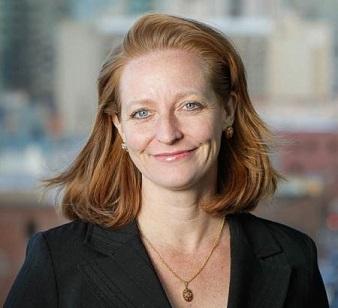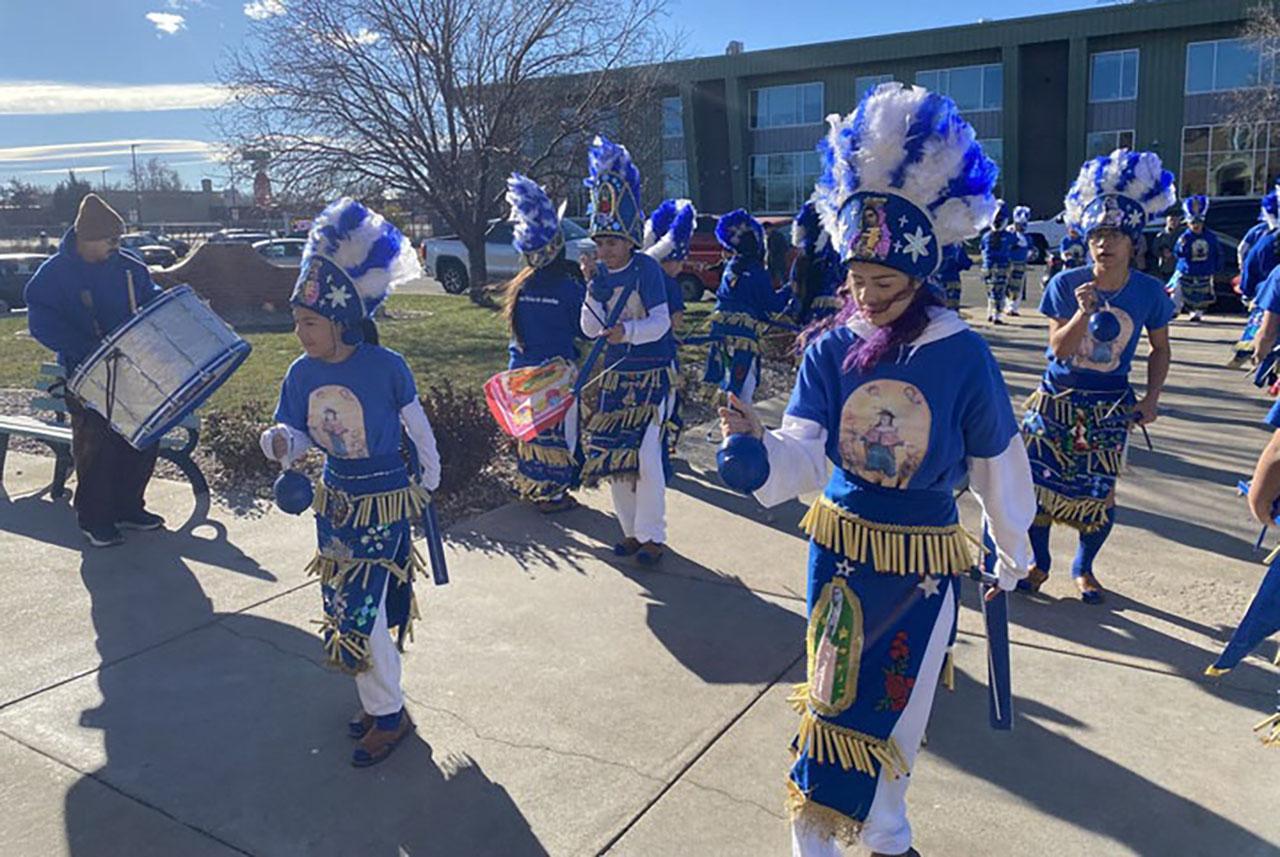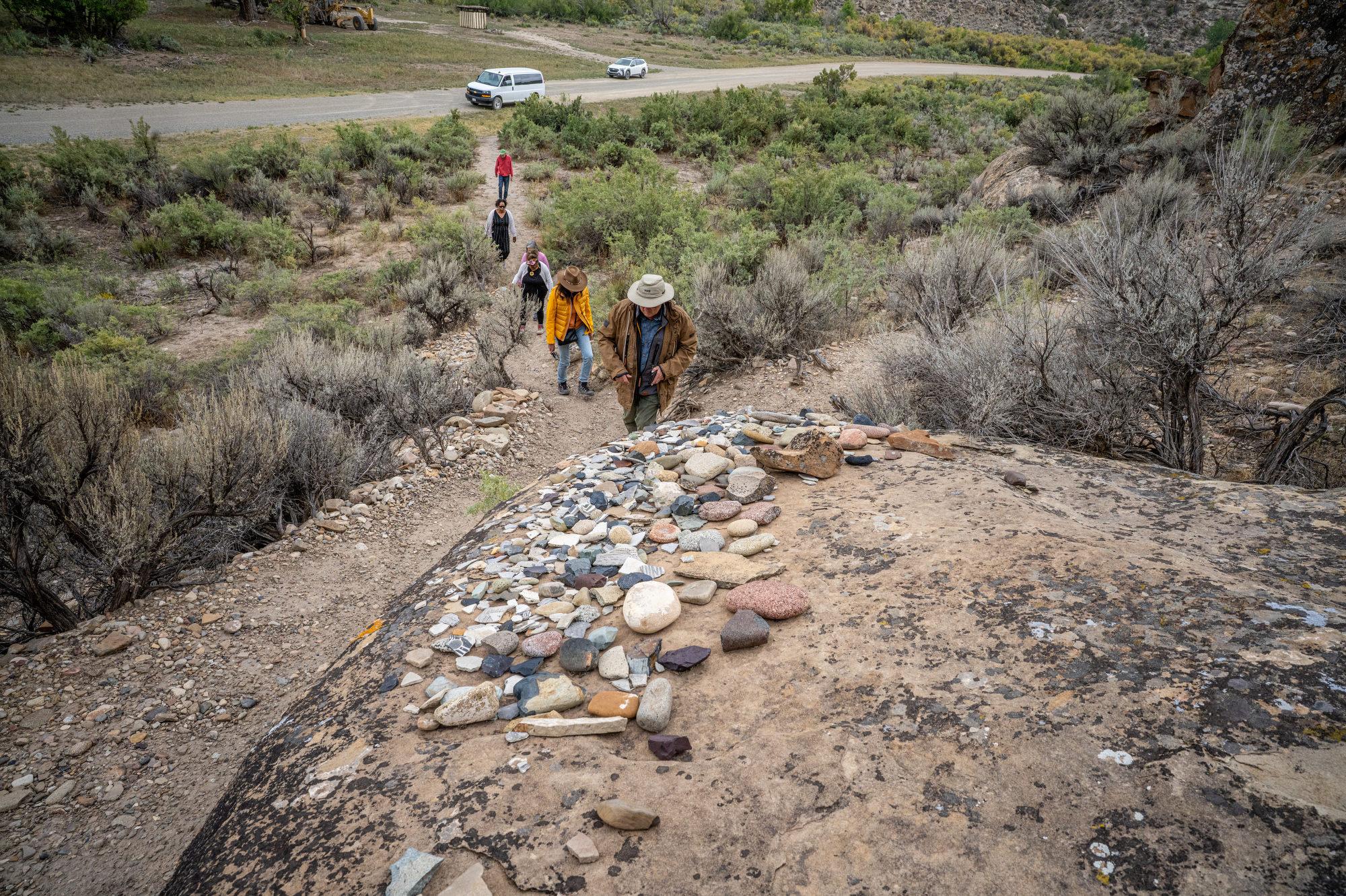
With the representation of a new congressional district up for grabs, Democrats recognize that Latino votes will be the deciding factor.
Congressional District 8 is nearly 40% Latino. Morgan Carroll, the chairwoman of the Colorado Democratic Party, said this population will not only decide the fate of congressional representation, but of representation across the board, including the CU Board of Regents, the state board of education and others.
“It is a powerful voting bloc, and no vote in that community can be assumed taken for granted,” Carroll said in an interview with Colorado Matters' Ryan Warner. “We have to be on the ground listening … it has to be a priority or it would be at someone’s peril not to give proper focus.”
Carroll was responding to criticism from non-partisan Latino organizations that said neither the Democrats or Republicans have historically ignored their communities until the last, critical moment. Since Congressional District 8 also has the fewest registered voters, Carroll said Colorado Democrats have been focusing on registration efforts for Latinos for the past year.
This interview has been edited for clarity and length.
Ryan Warner: Morgan, welcome back to the program.
Morgan Caroll: Thank you. Good to be here.
Warner: Midterm election years are almost always an uphill battle for the party in power, which in this case is yours, true at both the state and US capitals. A composite of polls shows 53% of Americans disapprove now of President Joe Biden. Are you worried in this environment?
Caroll: Worried? No. But working hard, yes. In Colorado, the president and Democrats are actually still doing quite well.
Warner: What do you point to say that? Are you seeing polls?
Caroll: I am. And I'm seeing approval ratings in the state, that still show a decent margin of positive approval for Democrats.
Warner: Bucking the national trend, you're saying?
Caroll: But we're above the national trend. But I do think that there's something we learn from these polls. And I actually don't think it's as much about Democratic popularity or Republican popularity, as much as it is voters are still struggling.
What I see in that is people don't think we've done everything that we need to do for them yet. So obviously we've accomplished a lot of what we said we were going to do. Things are getting better. Maybe not fast enough. Things can still get better. They can still get worse. So I think we're smart to approach midterms, understanding that people are still struggling. They're less interested in political parties and more interested in what we're going to do for their bottom line, for their kids, for their lives.
There are, of course, people who are die-hards in the political parties either way, but this midterm or any other, if we're not speaking the language of what is important to voters, then we're missing the mark.
Warner: What's an example of a struggle that voters have, that Americans have that you think Democrats ought to be addressing?
Caroll: I think we have to understand that underneath issues of whether you can pay your bills, whether you can afford to have a place to live, whether your kids can go to school, mental health challenges are on the rise. Anyone who's trying to parent in this whole period of a pandemic has had a lot of extra stress on themselves and their kids, anyone who's tried to teach.
But we understand that beyond the issues that people are facing, that anxiety and depression and stress, like our country is just still very stressed out. And that means it's cumulative. It doesn't go away overnight with one issue, whether it's been people affected by the pandemic, whether it's people who've had to telecommute from home, whether it's people who've tried to figure out how to homeschool their kids. An election doesn't change all that overnight.
Warner: And so isn't that kind of the recipe for an enthusiasm gap. I mean, people are distracted, people are dealing with unprecedented hardships. And as you say, that may not be able to change in one election. Why turn out to vote? Are you facing that as Democrats?
Caroll: I think we do need to give people a reason to vote and understand that their vote will decide whether things continue to get better or less we assume that it can't get worse, it can. And we do need to drive a direct line between decisions at the polls, what policies are made, how they're implemented and what is going to happen in their everyday life.
Warner: Well, give me an example of what Democrats would do to bring down the cost of living if they're allowed to maintain power.
Caroll: So one good example is when Democrats got the trifecta at the state legislature.
Warner: That means that they have the State House, the State Senate, and the Governor's Mansion.
Caroll: Exactly. And what they did is they closed corporate tax loopholes and created the first-ever affordable housing fund. We have seen, for example, on affordability in rural parts of the state in particular, broadband is absolutely essential for healthcare, for having a job, and for being able to have educational options. That was part of Biden's package, the bipartisan infrastructure package meant an investment in broadband. And we did the same thing at the state level. That affects your pocketbook in terms of what your job choices are.
The affordable housing fund. We have literally looked at grant programs, partnering with local governments for getting affordable housing brought up. These were all under Democratic leadership, these were new, and this is the kind of thing that will end and not be funded. And really when we saw Republicans in control, there was nothing done here. It was everybody's on your own. And if you can't afford it, it's too bad.
Warner: There's a Democrat named Alex Walker who's running to unseat the incumbents and provocateur, Lauren Boebert in the 3rd Congressional District, which includes Grand Junction and Pueblo. Walker has made a splash on social media. I'd like to play a snippet of an Instagram video he posted in March.
Alex Walker: I believe that if Democrats played half as smart and half as shameless as Republicans, we would never lose another election again. Did you know that 71% of Americans agree with Democratic policies? Probably not because we lose most of the elections we run in. Democrats don't have a messaging problem. We have a ruthlessness problem. I loved Michelle Obama's quote. "When they go low, we go high." Let's not forget America burned three months later. When they go low, I'll be waiting with a chainsaw.
Warner: Do Democrats have a ruthlessness problem?
Caroll: I don't think so. I really fear when I've seen the right-wing of this country lose empathy and value cruelty and ruthlessness. It's changed our culture. And it's actually embraced violent speech and violent concepts. I do think there's a way to be forceful about who we are and what we stand for and getting it out. Ruthlessness doesn't help anybody. It just means that we've got two main political parties that would be devolving into cruelty, and cruelty is not part of our platform.
Warner: Where could Democrats be more forceful?
Caroll: I was starting to say earlier on what we have accomplished and what's at stake. So let me give you an example of being more forceful. I don't think we have two mainstream political parties in the United States of America anymore. I believe the leadership of the Republican party has been hijacked by a militia wing, that is acting more like a cult than a political party. That is forceful.
But I also think I can back it up. I'm not interested in calling names. I'm interested in democracy. And what we're seeing is a trend of an embrace by a major political party in this country, an embrace of conspiracy theories, an embrace of hate speech, an embrace of name-calling, and tearing each other down, and belittling, and demeaning and bullying as part of an actual platform for a political party.
Warner: It sounds to me like you've had to make a transition as chair of the state Democratic Party from seeing the Republicans as an equal and worthy opponent to something else. Is that what I'm hearing?
Caroll: You are hearing that because the party that I see now has embraced corruption, violent speech, violent behavior, and has frankly been dangerous. It has led to an increase in terms of death threats against elected officials, elections officials, even the chair of the Republican party was part of a militia organization that called for summary execution of people who disagree with him.
Warner: I'll say, so that's FEC United, from which Kristi Burton Brown has cut ties.
Caroll: That's right, but that's not normal. And my concern is, is 'just because' becomes common and persistent over time that we think that this is somehow normal. It's not normal. And so you are very correct to say that I no longer see myself as dealing with two political parties with slightly different philosophies or beliefs about how to best govern. And this is now, if you watched any of the Republican primary or assemblies, any of the mainstream Republicans that are not embracing conspiracy theories and not embracing a more violent speech and call to arms are losing, or they're only getting on the ballot through petitions.
Warner: Well, and isn't that the fundamental question. Republicans are winning.
Caroll: Not in Colorado, but Colorado is a mixed state. They are winning in parts of the country. And even as we hold here, I fear for people in the parts of our country whose lives and personhood are in danger, based on Republicans in control, who are aggressively undermining people's freedoms and their rights.
In Colorado, we're in a better position. And if we hold in the midterm elections, people have a choice. We can still be that beacon for good elections, for personal freedoms and liberties, but there are real pockets. If we want to know what happens when Republicans get in charge, we don't have to speculate.
Warner: We have spent some time in Colorado's new 8th Congressional District, which sort of latches onto I-25 extending from Thornton in the south, Brighton, up to Berthould, Greeley. And this is portions of Adams, Larimer and Weld Counties. It was drawn to be highly competitive. How do Democrats win there?
Caroll: The 8th Congressional District is very competitive and we win because we are better for working people and for working families. This district is a good cross-section of what a lot of families in Colorado are facing. And so whether we do economic and tax policies that are about every Coloradan or for billionaires is going to matter in this district. Whether we fully fund our schools, which Democrats support, is going to really directly affect life and opportunity for people in this district.
Warner: I imagine that Republicans support funding schools though they think there ought to be more options than Democrats would say for public money.
Caroll: What I've seen is that when it comes to votes, that's not necessarily true. It's voting against budgets that fund schools. Well, that's not voting to fund schools. When they want to privatize or introduce vouchers away from public schools, into private parochial schools, that's not fully funding public schools.
Every time we've had a budget where there's an opportunity to fund public education in the state, or even a ballot measure that might fund public education in this state, the practice has essentially been to oppose it. So while it may be a talking point for Republicans to fund schools, the practice and the reality has actually been quite the opposite.
Warner: So I hear you saying that the education message will resonate throughout the 8th District, which is a real mix of suburban and rural. CD 8 is also the district in Colorado with the largest population of Latinos, nearly 40%. We heard this week from an organizer who fought for that level of representation. And I want to play a somewhat searing commentary from Michael Cortes of CLLARO, The Colorado Latino Leadership Advocacy and Research Organization.
Michael Cortes: Traditionally, Latinos are assumed to be mostly Democratic, but the Democratic party does not invest heavily at all in trying to get voter registration drives targeting Latinos. They wait until the election is too close and then spend too little money trying to register people. They treat other Democrats much better. We are just not enough of a priority for either of our political parties.
Warner: What do you think?
Caroll: Well, I do think that the 8th District is historic in that it's the first time we saw a Latino influence district really come out of redistricting. We started focusing on prioritizing Latino voter registration and Latino voters over a year ago, and really have never stopped. And he's right that there's more to do. And we may never have as much money as the Republican party, but we are organizing voter registration across 64 different counties. And specifically focusing on Latino voter registration in the 8th because he's right.
The level of engagement and participation of our Latino voters in that state will decide the outcome for that district. It will decide the outcome, every vote there is going to matter. And while the Latino community there is no monolith by any stretch, that community has the power to decide the outcome, not only for the 8th Congressional District, but the CU Board of Regents in the 8th District and the State Board of Education in the district. And that could decide the majority of two critical education-related bodies in the state in addition to Congress.
Warner: I'm hearing a theme emerge from you, also from voters we've spoken with, especially in the 8th. The vast majority of registered voters in Colorado are unaffiliated. I've heard you talk about people not necessarily feeling strongly about one party or another. Are parties a dinosaur? Are you fighting against extinction to some extent?
Caroll: I think we have to adapt or die and parties are necessary. We are leaders to help recruit and train candidates. If parties are not strong and recruiting and training good, quality candidates that will do a good job representing people, then we have no infrastructure left in a free and fair democracy for where we actually recruit and build the talent pipeline.
Warner: Is that where you see your role being strongest in Colorado, is the pipeline?
Caroll: I think the pipeline is the first place I would say, but ultimately I think we have an outreach role and an education role. That when people see government as an it, or a them, or something that doesn't affect their life, they are more likely to check out. And then elected officials actually get away with worse behavior and they're less accountable. So quite the opposite of extinction.
I see my role as part of making democracy healthy, and that we do have to learn that maybe our views as Democrats are in line with what most people in the states say. But fundamentally we can never stop listening to where people are coming from and get so stuck in our own world, drinking our own Kool-Aid that we get out of touch with where people are at.
Warner: Before we go, in the seventh congressional district, longtime incumbent, Ed Perlmutter is retiring, which means it's an open seat. Because of redistricting, the seventh is also now more competitive. We heard from the State Republican Party that there will be ample national money flowing into these races. Is that true on the Democratic side?
Caroll: We do think that nationally Democrats will be targeting the 7th and the 8th as well. The majority of the United States House, and whether there's any chance for this country to move forward on anything has everything to do with who winds up in the majority in those seats. So the 8th and the 7th will be a priority nationally. And this will decide what the priorities for the country are going forward.
The platform that we've seen come forward, if Republicans get the majority back at the local or national level is basically tax breaks for billionaires, tax hikes on ordinary people, defunding public schools and taking away people's individual rights, freedoms, and liberties. That's not a good platform. And they have shown that they are willing to act on it.
Warner: It's interesting because when I talk to Republican leaders, what they say their platform is, is actually not that different in the end. Maybe the means differ, but in the ends, from Democrats, it's education, it's bringing down crime, which by the way, they lay to some extent at the feet of Democrats. It is the cost of living. You have a message to differentiate, it seems to me, Morgan Caroll.
Caroll: Yes, I do. Because the difference is between talking points and what they actually do. In fact, we just funded law enforcement at the national level. We've done record investments in mental health. When we were running legislation on red flag laws or background checks to keep firearms out of the hands of dangerous convicted felons, Republicans opposed to every measure essentially that we have done to improve community safety.
The bills we've done to address cost of living to help basically people in the pocketbook, they have been no votes. So while they're talking points might sound similar because they are seeing similar polls. But instead, they're focusing on bullying trans kids and criminalizing abortion. That's what they're doing. They're trying to ban books, they're trying to politicize curriculum, and tell teachers what they can and can't teach in the classroom. That's what they're doing. So the difference between what they're saying and what they're doing is profound, and when people are busy, they may not have time to see how big that gap is.
Warner: Wasn't there bipartisan support of the fentanyl bill?
Caroll: And that is actually still going. So I do think where there's room for ... We had a bipartisan infrastructure bill. There is bipartisan support for the fentanyl bill that is going through the state level. That leadership to negotiate and talk with Republicans and bring them on board is because of Democratic leadership. If you look at the bills that the Republicans are introducing, they are for talking points, they are for campaign mailers, they are not for governing, they don't actually address the problems they say that they are committed to fixing.
Warner: Thank you so much for being with us, Morgan. Nice to see you.
Caroll: Good to see you.









